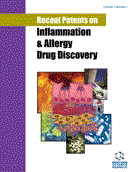Abstract
Thalidomide and its immunomodulatory imide drugs (IMiDs) analogues CC-5013 (Revlimid™, Lenalidomide) and CC-4047 (Actimid™, Pomalidomide) have been used as anti-inflammatory and anticancerous drugs in the recent years. Thalidomide and IMiDs inhibit the cytokines tumour necrosis factor-α (TNF-α), interleukins (IL) 1β, 6, 12, and granulocyte macrophage-colony stimulating factor (GM-CSF). They also costimulate primary human T, NKT and NK lymphocytes inducing their proliferation, cytokine production, and cytotoxic activity. On the other hand, the compounds are anti-angiogenic, anti-proliferative, and pro-apoptotic. Thalidomide analogues have been used as inhibitors of α glucosidase and could be potential drugs for diabetes treatment. In this review, we explore the current trend of the different structures, the new patents, and the possible new applications in different pathologies.
Keywords: Thalidomide, IMiDs, lenalidomide, revlimid, actimid, pomalidomide, cytokines, Multiple myeloma, Prostate cancer, Angiogenesis, Diabetes
 11
11


















